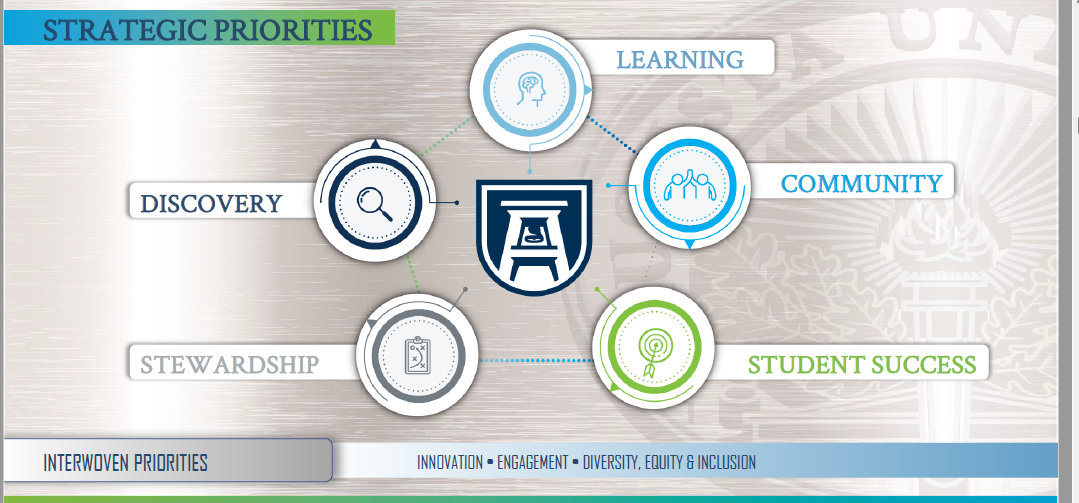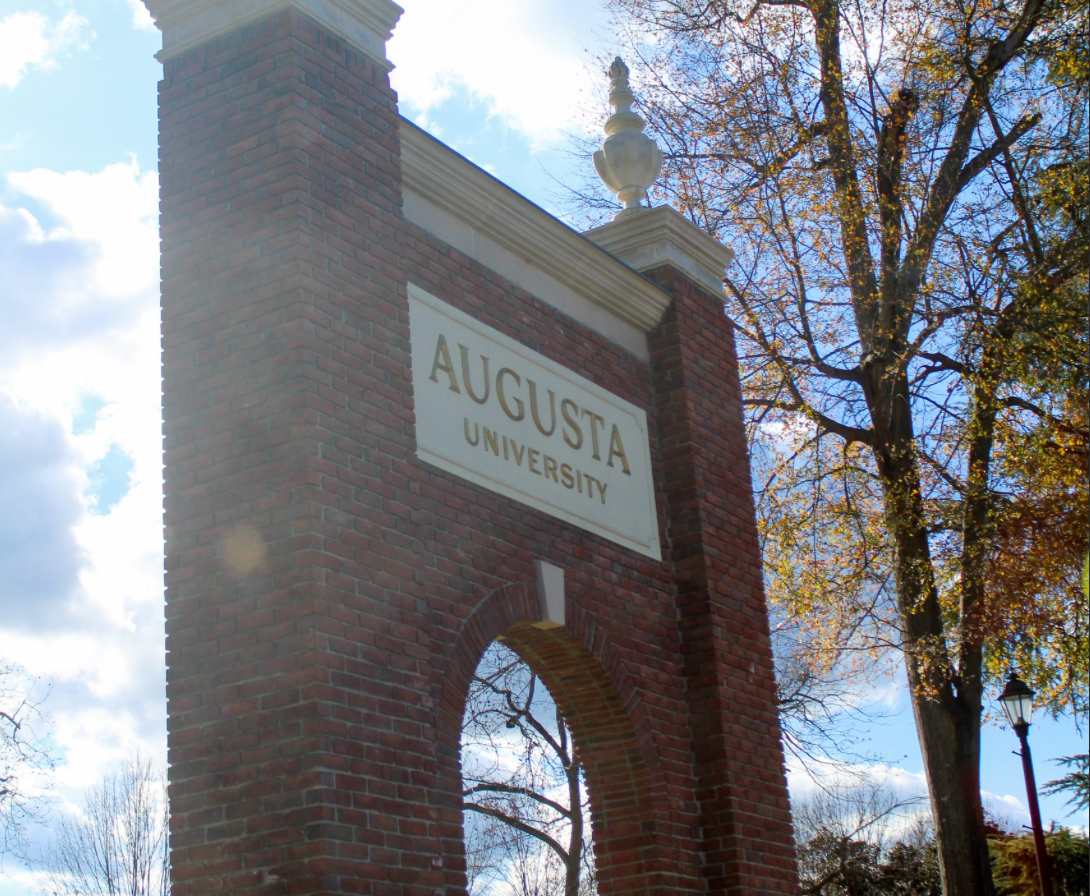Augusta University President Brooks Keel hosted a town hall meeting for faculty and staff on March 17 to present the draft of a strategic plan to guide Augusta University into 2027.
The five-year plan was broken down into five categories: learning, discovery, student success, community and stewardship. Three distinguishing objectives were created for each category.

Neil MacKinnon, provost and executive vice president for academic affairs, said the first distinguishing objective for the learning category is to provide a forward-looking education to fulfill the needs of the students.
“We don’t want to do traditional learning. We want to eradicate that,” MacKinnon said. “You’ll see an initiative about launching Augusta University online as part of that. And also meeting the needs of our communities, the fact that we want to train Georgia’s next leaders.”
[adrotate banner=”51″]
The second objective is to provide impactful learning experiences to support student aspirations.
“Really, we’re talking about are those ‘aha moments’ in the lives of our students, right when things really click if they’re challenged in new and exciting ways. As part of that also we want to cultivate and incentivize our faculty also related to teaching innovation,” MacKinnon said.
MacKinnon said the third objective is to provide an inclusive instructional culture.
“We are committed to fostering students’ sense of belonging and engagement and we support their aptitude for collaboration with individuals across diverse backgrounds,” he said.
Objectives for the discovery category are interdisciplinary and collaborative discovery; creativity, innovation and entrepreneurialism; infrastructure for discovery excellence.
“Through innovative initiatives for recruiting retaining and developing researchers we will increase research funding across all disciplines while pursuing our goal of being among the top 60 NIH (National Institutes of Health) funded medical schools by 2030,” MacKinnon said, adding, “We are committed to infusing a culture of creativity innovation entrepreneurialism throughout all of our colleges and schools. We will reduce the physical limitations and the administrative burdens that distract researchers from the creative process that leads to discovery.”
For the fourth category, student success, the first objective targets educational access and value by ensuring affordability and financial support. The second objective calls for creating a student-centered environment.
MacKinnon said, “Currently, as many of you know, we are in the midst of developing for the first time a strategic enrollment management plan that for example looks at things like dining, transportation, things that influence student success and are those activities, are those services we provide, truly student-centered?”
The final objective for student success is having personalized student connections that will foster a sense of belonging with the university and the Augusta area as a whole. MacKinnon said that will include supporting students’ mental health and well-being in addition to their academics.
Russell Keen, executive vice president of administration and chief of staff to the president, took over to present the final two categories, Community and Stewardship.
The first objective for community is to have a campus experience like no other. It deals with the interactions among the campuses and community. Keen said they want to continue to actively engage with partners in the community.
The second objective, Jaguar Town Dynamic, calls for creating a culture of excitement and belonging for the university to strengthen community connections.
The final objective is educator and Partner of Choice.
“Augusta University will become the educational leader and partner of choice for innovative community collaborations that advance the institution the partnering organization and the communities we serve,” Keen said.
[adrotate banner=”15″]
Turning to the final category, stewardship, the first objective calls for greater philanthropy and financial sustainability by becoming the philanthropic investment of choice. The second objective is to create a culture of fiscal wellness, to foster a sense of accountability at all levels of the university.
The third objective centers on becoming people conscious.
“We will implement strategies and align investments to offer competitive compensation and leadership and professional development to support career advancement,” Keen said.
Comments and suggestions were taken on what should be added, or clarified, in the draft plan before the final version is created.
Additionally, the university is soliciting input from staff, students and alumni, along with public comments. The plan is posted online at: https://www.augusta.edu/about/planning/strategic-plan/index.php
Input will be accepted through Thursday, March 24. It is expected the final plan will be released in April, but an exact date was not given.
Dana Lynn McIntyre is a general assignment reporter for The Augusta Press. Reach her at dana@theaugustapress.com












